Israel expands operations in southern Gaza amid worsening humanitarian crisis
Israeli forces expanded military operations in the southern Gaza city of Khan Younis as Cairo awaits response to proposal that seeks to end war.
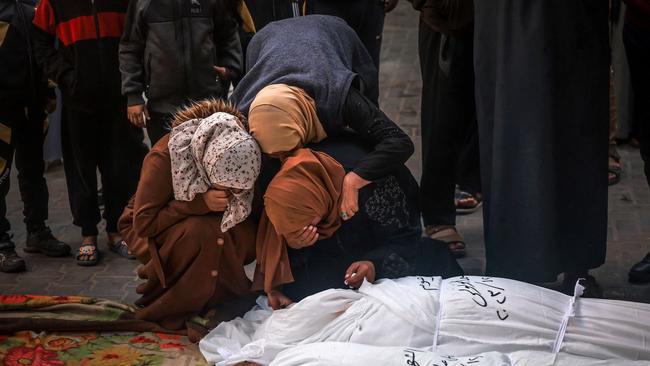
Israeli forces expanded their military operations in the southern Gaza city of Khan Younis, intensifying efforts to kill Hamas’s top leadership, as aid agencies said the areas to which Israel has directed Palestinians to evacuate were increasingly overcrowded, short on resources and hit by Israeli strikes.
A Hamas political delegation was headed to Cairo on Friday to discuss a deal proposed by Egypt to end the war, a plan that neither side has agreed to so far, Egyptian officials said. Israel said negotiations on the deal, which would free hostages held by Hamas, were under way.
In recent days, Israel has intensified operations in densely populated refugee camps in central Gaza where its military says Hamas militants are based in tunnels underneath the decades-old settlements.
The Israeli military on Friday said it in recent weeks had destroyed what it called “tunnels of Hamas’s general headquarters” in northern Gaza. It said they had served as a hideout for the group’s leader, Yahya Sinwar, and other senior officials. The tunnels, which stretched for more than 200m, with a depth of about 20m, contained electricity, ventilation and sewage infrastructure, the military said.
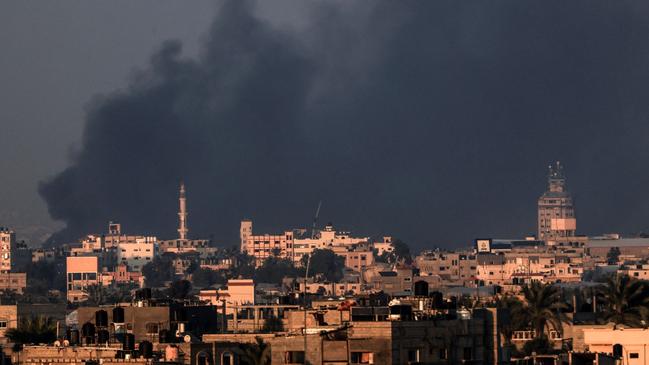
As a result of Israel’s recent operations in central Gaza, thousands of displaced civilians have surged toward the extreme south of the strip. United Nations facilities are overcrowded everywhere in Gaza. The south has become particularly inundated since Israel on Dec. 25 issued evacuation orders to Palestinians in central Gaza, said Juliette Touma, director of communications for the UN agency for Palestinian refugees, Unrwa.
An estimated one million people, nearly half of Gaza’s population, are now based in Rafah, she said. Humanitarian agencies estimate the area now contains some 12,000 people per square kilometre. Shelters are at 10 to 20 times intended capacity. One in Khan Younis, designed for 1,000 people, now houses 30,000 individuals, she said.
Rafah was hit by at least one deadly strike on Thursday night, local officials said. Unrwa said strikes there were ongoing in the city. The Israeli military said it was “operating to eliminate the Hamas terrorist organisation and to release the Israeli hostages taken to Gaza.” “It’s a sea of people. People are on top of each other,” Touma said. “People are putting together wooden blocks and plastic sheets to take protection. Some don’t even have that, and just sleep on the concrete.” Exacerbating the humanitarian crisis, the commercial sector in Gaza has almost collapsed following Israel’s offensive. As a result, humanitarian needs have soared. Nearly the entire population of Gaza now depends on aid, Touma said.
As the humanitarian and economic situation worsens, Israeli Finance Minister Bezalel Smotrich on Friday said Israel would continue to withhold Palestinian tax-revenue funds as long as he remains in the post.
Israel collects monthly tax revenues on imports and exports on behalf of the Palestinian Authority in the West Bank but has refused to release funds earmarked for services and salaries in Gaza since the Hamas attack on Oct. 7. It alleges the money could reach the militant group, which is a US-designated terrorist organisation.
‘[W]e will never put our destiny in the hands of foreigners, and as long as I am finance minister, not a single shekel will go to the Nazi terrorists in Gaza,” Smotrich wrote on X. “This is not an extreme position. This is a lifesaving and reality-based position.”
The Palestinian Authority didn’t immediately respond to a request for comment. Palestinian Prime Minister Mohammad Shtayyeh had on Wednesday said that there were intensive international efforts to get Palestinian tax revenues released to help finance salaries in Gaza and said his administration “will not back down from this matter.” In the absence of tax revenue, the Palestinian Authority has used bank loans and aid from the European Union to pay about 75 per cent of salaries.
Israel’s goal of taking control of central Gaza would create a continuous line of control between Israeli ground troops in the north and operations in Khan Younis, which Israel says is home to one of Hamas’s most important military brigades where it believes some of the hostages are being held.
The Israeli military said it had killed dozens of militants in Khan Younis in recent days, using air strikes, drones, snipers and tanks. Israel has said it is focusing its efforts to track down Hamas’s senior leaders. They include Sinwar and Mohammed Deif, head of the group’s armed wing, who are believed to be hiding in a tunnel network beneath Khan Younis.
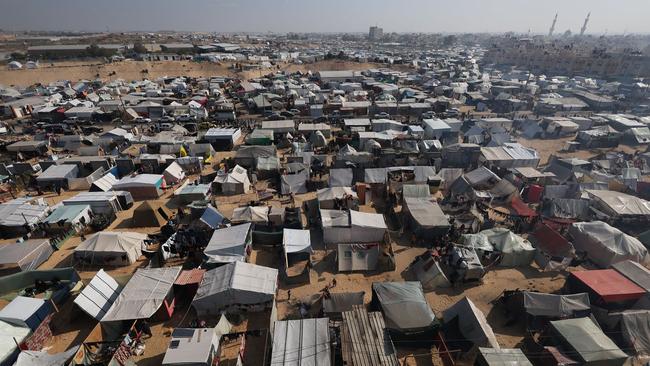
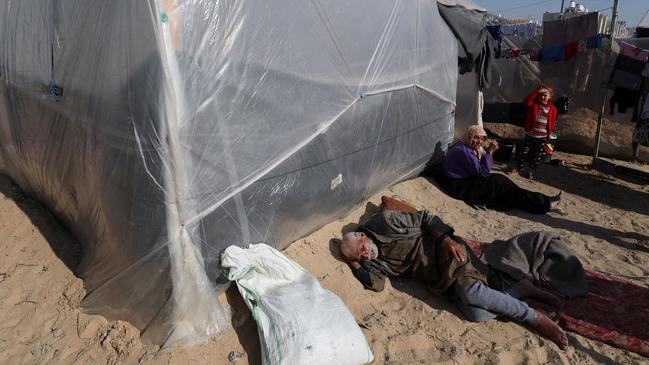
More than 21,500 people have been killed in Gaza, most of them women and children, since Israel launched its offensive, according to health authorities in the enclave, whose figures don’t distinguish between civilians and militants. The toll amounts to nearly 1% of the strip’s population of about 2.2 million people.
The Palestinian ministry of health estimates that an additional 7000 people are buried under rubble and not yet accounted for, including more than 4000 children.
The high population density in areas where Israel is planning to conduct operations coupled with growing international criticism of the high civilian death toll will force Israel to slow the pace of its offensive, said former Israeli military intelligence chief Amos Yadlin.
“Fighting in the Khan Younis area is at low intensity, unlike Gaza City, where it was high intensity, because there are civilians and hostages there, and because the United States is measuring the collateral damage carefully,” Yadlin said. He added that Hamas’s use of civilian infrastructure, such as schools and mosques, further complicated the fight.
About 85 per cent of Gaza’s population, or 1.9 million people, are estimated by the UN to have been displaced by the war, some several times, as they have followed Israeli instructions to get out of the way of air strikes or ground operations.
Some 76 trucks carrying medical aid and food entered Gaza through the Rafah border crossing with Egypt on Thursday, following 110 trucks Wednesday. That number was well below the daily average of 500 truckloads, which included commercial goods for the private sector, that entered the strip before Oct. 7. That day Israel launched an offensive in response to a Hamas attack on southern Israel from Gaza that killed some 1200 people, most of them civilians, according to Israeli officials. As part of its offensive, Israel sealed the border, later opening it only to some aid.
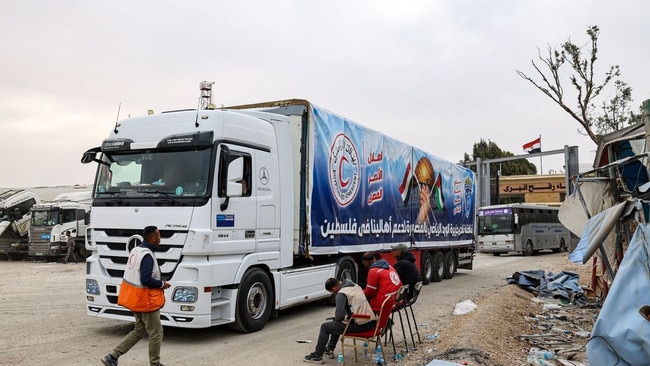
Unrwa Commissioner-General Philippe Lazzarini said Friday that the humanitarian operation in Gaza faced numerous challenges, including constant bombardment and air strikes, long delays at border crossing points and regular breakdown in telecommunications.
“International humanitarian law is very clear: The State of Israel as the occupying power must ensure that the population has access to and is provided with basic services. Likewise, all parties to the conflict must facilitate humanitarian access to all those in need,” Lazzarini said. “Food, water, fuel and all humanitarian assistance must never be used as a weapon of war.” Hamas and other militants took around 240 people hostage during the Oct. 7 attack. More than 100 hostages were freed in November during a temporary ceasefire agreement with Hamas in which Israel released 240 Palestinian prisoners. The deal fell apart after a week, with each side blaming the other for its collapse.
Negotiations are continuing toward another agreement aimed at producing a ceasefire in Gaza, regional officials say, with a Hamas political delegation headed to Cairo Friday to discuss an Egypt-proposed deal to end the war, Egyptian officials said.
“We are holding contacts at this very moment” toward another agreement that would free more Israeli hostages held by Hamas in Gaza, Israeli Prime Minister Benjamin Netanyahu said Thursday, without elaborating.
Earlier this month, Egypt proposed a multiphased deal that calls for a temporary ceasefire to allow for the release of Israeli hostages in return for Palestinian prisoners held by Israel, followed by the formation of a transitional, technocratic Palestinian government that includes rival Palestinian factions, Fatah and Hamas, and an end to the war.
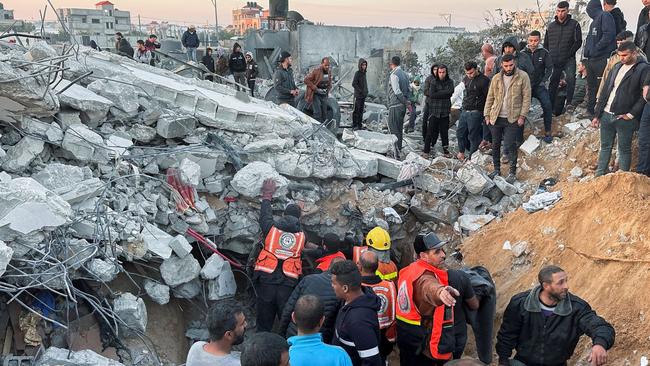
Diaa Rashwan, a spokesman for the Egyptian government, said on Thursday that Egypt hasn’t received a response to the proposal from any of the relevant parties.
Egypt, Qatar and the US, which brokered the initial ceasefire deal, have continued to press Hamas and Israel to accept another agreement to free more hostages. There are still 129 people held hostage in Gaza including 23 bodies, according to the Israeli prime minister’s office.
As regional tensions grow, with Iranian allies threatening to escalate hostilities with Israel, Syrian state media said a number of Israeli air strikes had targeted the southern part of the country late on Thursday from the direction of the Israeli-controlled Golan Heights. The Israeli military declined to comment on what it described as foreign reports.
In an attempt to clamp down on threats from Iranian allies, the US on Thursday imposed fresh sanctions on entities in Turkey and Yemen, which it said were responsible for channelling money to Iranian-backed Houthi rebels in Yemen.
The Houthis, who are funded and trained by Tehran, have conducted numerous attacks on commercial vessels passing through the Red Sea, prompting several companies to stop voyages through the waterway.
The US Treasury sanctioned an individual currency exchange chief in San’a, Yemen, and three exchange houses in Yemen and Turkey, for allegedly transferring millions of dollars to the Houthis at the direction of Iran’s Islamic Revolutionary Guard Corps.
Late on Thursday, the US military said one of its warships had downed a drone and an antiship ballistic missile fired by Houthis in the southern Red Sea, in what it said was the 22nd attempt by the rebels to attack international shipping since Oct. 19.
– Anat Peled, Jared Malsin, Suha Ma’ayeh and Summer Said contributed to this article.
– The Wall Street Journal


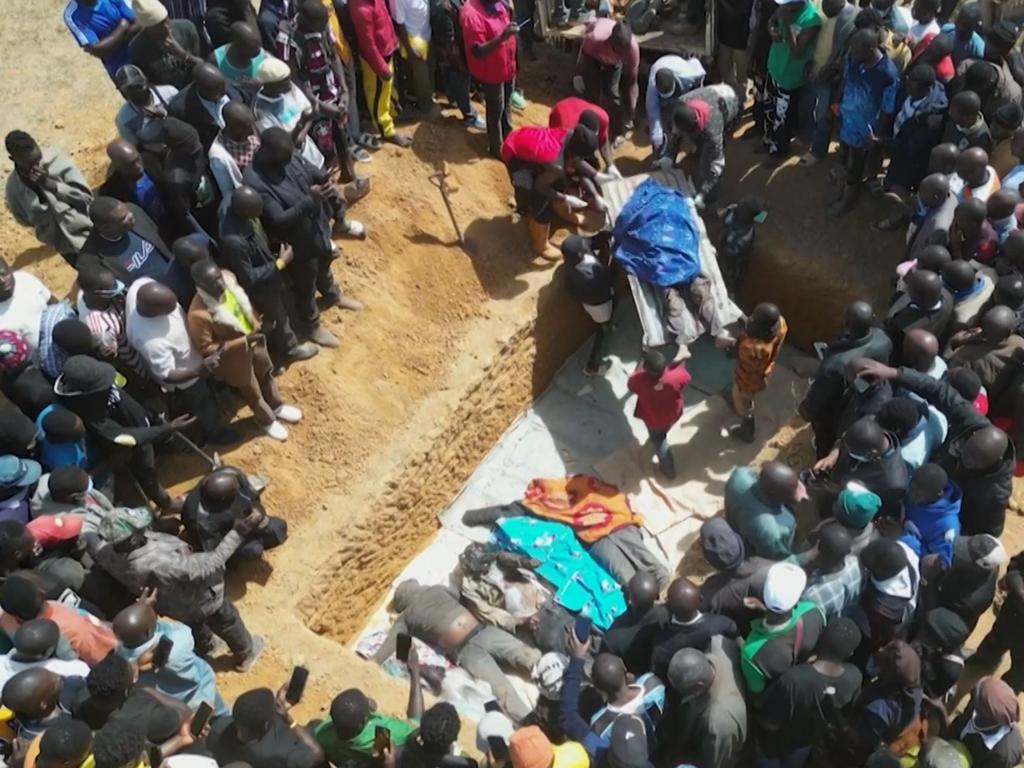

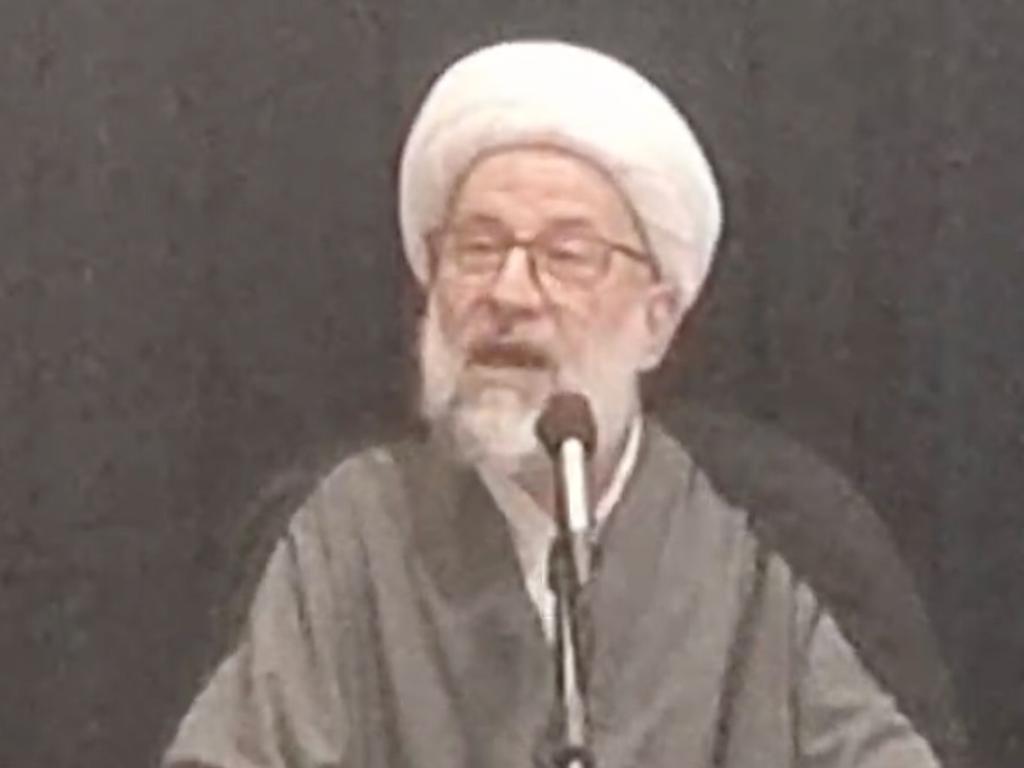
To join the conversation, please log in. Don't have an account? Register
Join the conversation, you are commenting as Logout